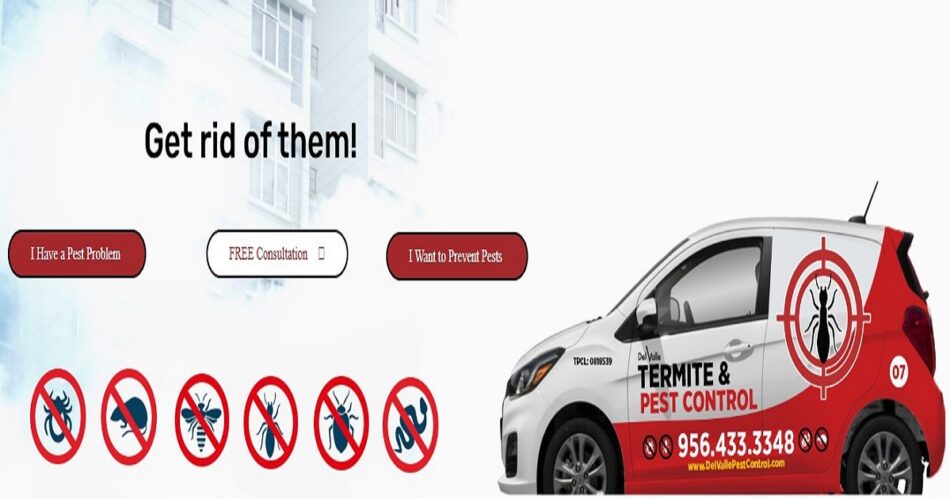Rodents are among the most persistent and troublesome pests homeowners can face. Whether it’s mice sneaking through tiny gaps or rats nesting in your attic, these unwanted visitors pose serious health and safety risks. Beyond the mess they leave behind, rodents can damage your property, contaminate food, and even cause electrical fires by chewing through wiring. That’s why effective rodent control isn’t just a luxury—it’s a necessity.
If you’ve noticed droppings in your cabinets, gnawed food packaging, or scratching sounds in the walls, it’s time to take action. In this article, we’ll explore how to detect, prevent, and eliminate rodents with proven strategies that keep your home safe and pest-free.
Why Rodent Control Is So Important
Rodents aren’t just annoying—they’re dangerous. Here’s why prompt and consistent Rodent Control Laredo, TX matters:
- Health Hazards: Rats and mice can carry more than 35 diseases, including salmonella, hantavirus, and leptospirosis. These diseases are transmitted through droppings, urine, bites, and contaminated surfaces.
- Property Damage: Rodents chew constantly to keep their teeth from overgrowing. They can damage insulation, wood framing, plumbing, and electrical wiring—creating both safety hazards and costly repairs.
- Contaminated Food: A single rodent can contaminate a pantry in a matter of minutes, making your food unsafe to eat.
- Rapid Reproduction: One pair of mice can produce dozens of offspring in just a few months. A small issue can turn into a full-blown infestation fast.
Common Signs of a Rodent Infestation
Early detection is key to minimizing damage. Watch out for these warning signs:
- Droppings: Small black or brown pellets near food, in drawers, or under sinks.
- Scratching Noises: Rodents are most active at night and may be heard in walls, ceilings, or attics.
- Gnaw Marks: Look for chewed wires, baseboards, or plastic containers.
- Grease Smudges: Oily streaks along walls or baseboards where rodents travel.
- Footprints or Tail Marks: In dusty or undisturbed areas like basements or crawlspaces.
- Strong Odor: A musty or ammonia-like smell from rodent urine, especially in enclosed areas.
If you observe one or more of these signs, it’s time to begin a rodent control plan.
Rodent Prevention: What You Can Do
Preventing a rodent problem starts with making your home less inviting to them. Here’s how:
1. Seal All Entry Points
Rodents can squeeze through gaps the size of a dime. Inspect your home’s exterior and seal cracks, holes, and openings with materials like steel wool, caulk, or metal mesh.
2. Eliminate Food Sources
Keep all food in airtight containers. Clean up crumbs, spills, and food debris quickly. Don’t leave pet food out overnight, and be sure to secure garbage bins with tight-fitting lids.
3. Fix Moisture Problems
Leaking pipes and standing water attract rodents. Repair plumbing issues, use dehumidifiers in damp areas, and ensure good ventilation in attics and crawlspaces.
4. Declutter Your Home
Rodents love hiding in clutter. Clear away piles of paper, cardboard, fabric, and other nesting materials, especially in storage spaces like garages and basements.
5. Maintain Your Yard
Trim vegetation away from your home’s foundation. Stack firewood off the ground and away from the house, and regularly clean up fallen fruit or garden debris.
Rodent Control Methods That Work
Once rodents are inside, you need to act fast to eliminate them. Some of the most effective solutions include:
1. Traps
Snap traps, electronic traps, and live traps are great for handling small infestations. Place them along rodent pathways (typically along walls or behind appliances) and check them daily.
2. Baits and Poison
Rodenticides can be effective but must be used cautiously, especially in homes with pets or children. Improper use can result in rodents dying in hard-to-reach places, causing odor problems.
3. Ultrasonic Devices
These emit high-frequency sounds intended to repel rodents. While popular, they are most effective when used in combination with other methods.
4. Professional Rodent Control Services
For larger or recurring infestations, professional exterminators offer the most thorough solution. They assess the problem, seal entry points, remove rodents safely, and provide follow-up prevention plans.
Long-Term Rodent Control Strategy
Getting rid of rodents is just the beginning. For long-term success:
- Schedule regular home inspections (especially before winter).
- Stay on top of cleaning and maintenance.
- Keep up with outdoor maintenance like trimming trees and sealing gaps.
- Use pest monitors or set a few traps as an early warning system.
Final Thoughts
Rodents can quickly go from a minor nuisance to a major infestation if left unchecked. Fortunately, with a mix of smart prevention, proactive habits, and, when needed, professional help, you can protect your home year-round. Effective rodent control starts with awareness and ends with a safe, rodent-free living space.





